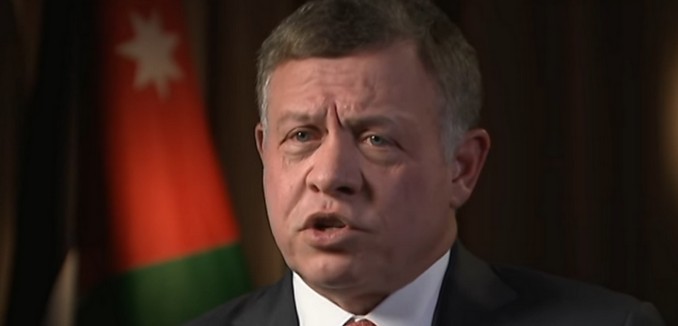Jordan’s King Abdullah announced on Sunday that the Hashemite Kingdom plans to end a lease of two areas of land to Israel that was agreed in annexes to the 1994 peace treaty between the two countries, when the provision comes up for renewal next year, The Times of Israel reported.
The step would mean that the areas – the so-called “Isle of Peace” at Naharayim in the north and Tzofar in the south – that have been leased by Israel since the agreement will revert to Jordanian sovereignty. The King has been under intense domestic pressure from hardliners not to renew the lease and to become entirely sovereign over the territory.
Reacting to the Jordanian announcement, Israeli Prime Minister Netanyahu said that the whole peace deal between Israel and Jordan was “important and valuable to both countries,” and vowed that Israel would do all in its power to strengthen ties between the two countries. “We will enter into negotiations with Jordan to extend the existing agreement,” Netanyahu said, adding Israel’s peace deal with Jordan as well as its agreement with Egypt are “anchors of regional stability.”
In a press briefing hosted by The Israel Project, Oded Eran, Israel’s former ambassador to Jordan, said that while he wasn’t surprised by King Abdullah’s decision, he didn’t expect Jordan to cancel other parts of the treaty. Echoing Netanyahu’s statement, Eran said, “For its own interests, the continuation of the adherence to the peace treaty is in Jordan’s interest as indeed it is in the interest of Israel.”
“Israel greatly helps the royal family diplomatically, and financial ties aren’t bad either,” long-time Arab affairs correspondent Avi Issacharoff assessed in The Times of Israel. Issacharoff continued, “When it comes to security, the cooperation between the countries can be described as between ‘excellent’ and ‘exceptional’ — a relationship that is carefully kept below the radar.”
Diplomatic relations between Jordan and Israel deteriorated in July 2017, after an Israeli security guard at the Israeli embassy in Amman shot and killed two Jordanians, who Israel said opened fire in self-defense after one of the men tried to attack him with a screwdriver. However, in March Jordan accepted Israel’s choice of new ambassador, Amir Weissbrod, and earlier this month the new Jordanian ambassador, Ghassan Majali, arrived in Israel, signaling a rapprochement between the two countries.
In his speech to the United Nations General Assembly last month, Netanyahu hailed Israel’s warming relations with Arab nations and said that the Jewish State was working on creating a process of normalization with Gulf nations. Netanyahu praised the “intimacy and friendship that I have not seen in my lifetime” with Arab States. “Israel deeply values these new friendships, and I hope the day will soon arrive when Israel will extend a formal peace, beyond Egypt and Jordan, to other Arab nations, including the Palestinians,” he added.
At the sidelines of UNGA, the Israeli prime minister met with his Egyptian counterpart President Abdel Fattah al-Sisi, where they discussed “regional developments.” Earlier this month, it also emerged that the ambassador of the United Arab Emirates to the United States, Yousef al-Otaiba, shared a table with his Israeli counterpart, Ron Dermer, at a public pro-Israel event in Washington, D.C.
[Photo: ABC News (Australia) / YouTube ]




